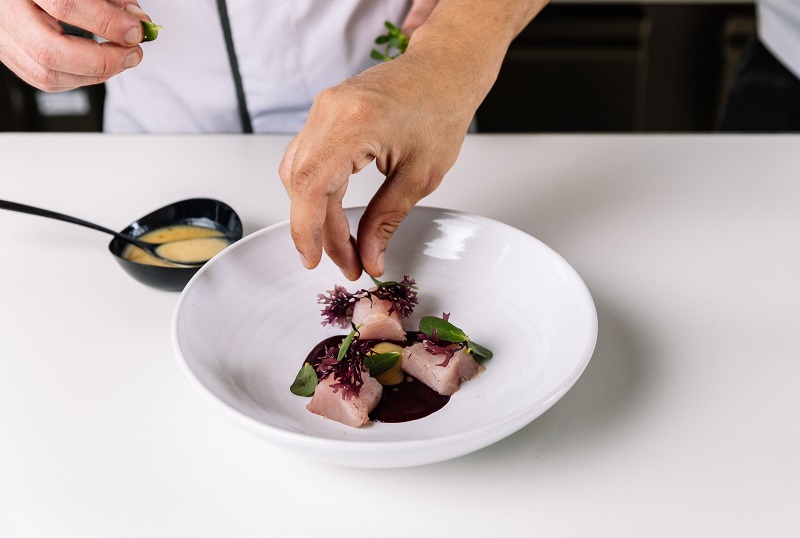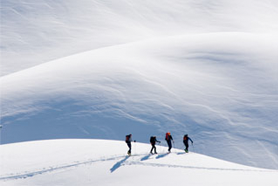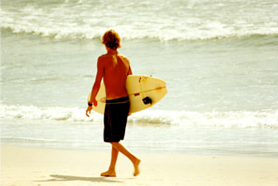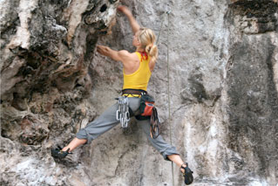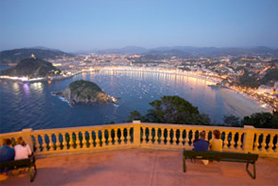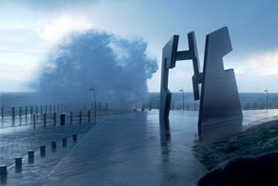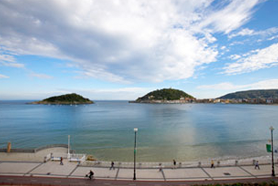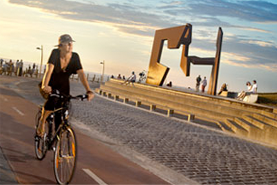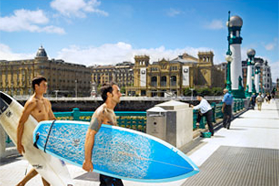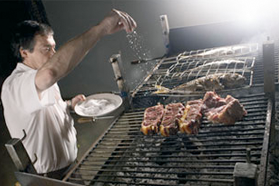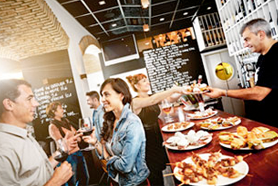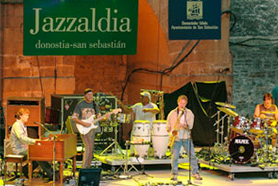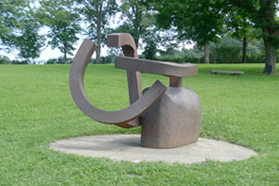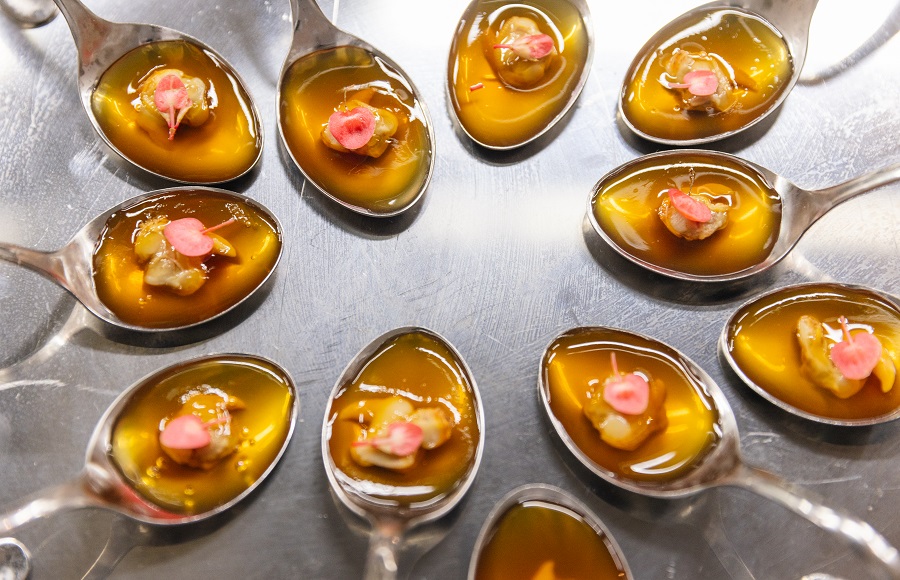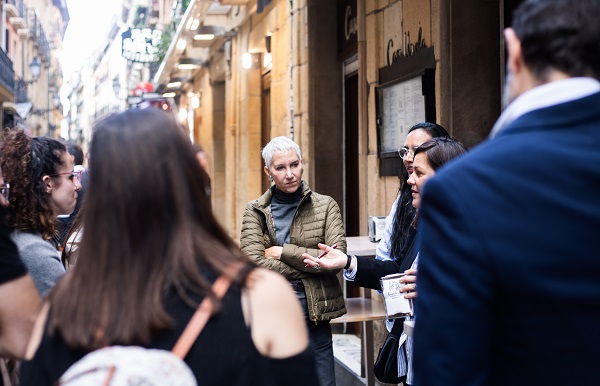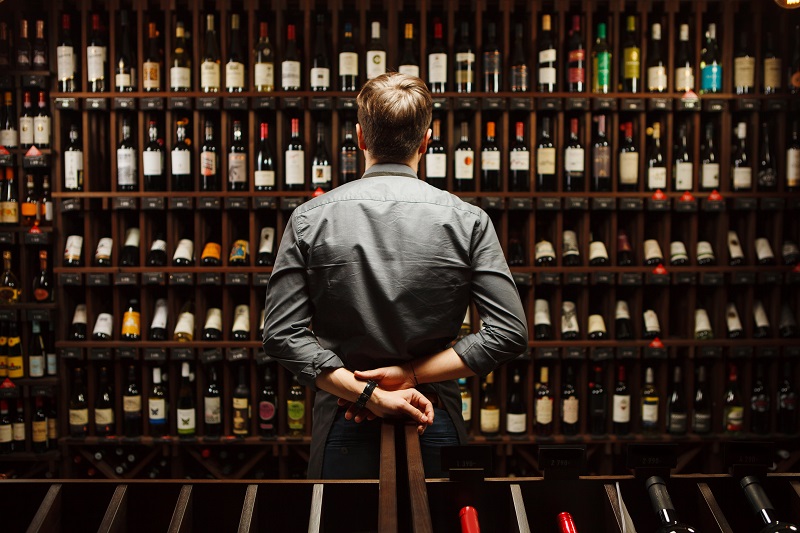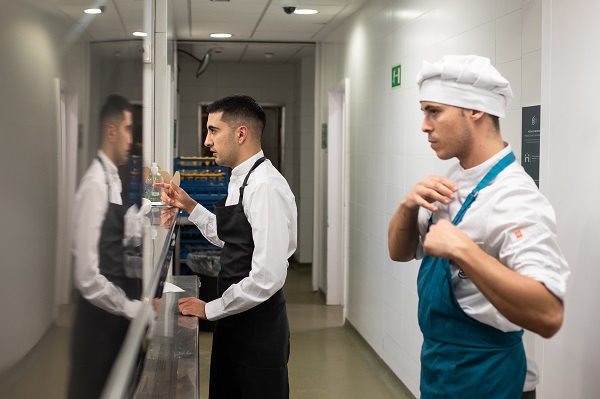We strive for realistic excellence
Improving one's skills is an ongoing endeavor. To attain a certain level of perfection, knowledge must be continuously tested. It needs to adapt to different contexts and challenge itself as time passes. We keep that in mind. Our students have the opportunity to immerse themselves in an environment where they can acquire advanced culinary technical knowledge. This program, featuring hands-on workshops, showcookings, and gastronomic activities, enables them to explore a wide range of culinary techniques and products. Additionally, it places a strong emphasis on developing the professional competencies required for comprehensive kitchen management.
Practical information
Start date: february 2025
Number of credits: 60 ECTS
Campus-Based Learning at Basque Culinary Center
Duration: 8 months in total
5 months of campus based training (february july 2025)
3 months of external internships (august to november 2025)
Schedule
Monday to Friday from 9:00 am to 2:00 pm (CEST)
18 Spots Available
Master's degree awarded by MONDRAGON UNIBERTSITATEA and delivered by the Faculty of Gastronomic Sciences at Basque Culinary Center
For inquiries and more information, contact us at cursos@bculinary.com
Master'S Objectives
Develop updated experiences based on multiple culinary knowledge based production techniques
Recognize the optimal point for the consumption of raw materials
Identify the most suitable and innovative food processing techniques
Acquire basic skills for leadership and teamwork
Internalize and act in accordance with the values and ethics of a contemporary chef
Learn about the main milestones in the history of gastronomy and food
Career Opportunities
We understand that professional opportunities can vary depending on the geographic location and individual preferences of students. Nevertheless, with this program, participants can pursue roles and positions in the following areas:
Chef in restaurants and hotels
Chef in institutional catering
Entrepreneur in culinary-related businesses
Personal Experiencies

George Isaac Reiss Gómez
Executive chef
Student of the 2nd edition of the Master´s Degree in Advanced Cookery
My overall- experience in the Master´s was very positive, demanding but very enriching. Thanks to my time at the Basque Culinary Center. I am currently the executive chef of my restaurant. This master´s degree has helped me to take that step forward firmly, taking the right decisions in my business and in my life.
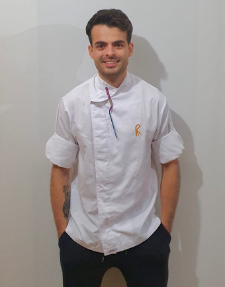
Juan José Solano Fonseco
Student of the 2nd edition of the Master´s Degree in Advanced Cookery
What I value most about the Master is its high level, in terms of technique and products, the team you work with on a day-to-day basis, as well as the professors with whom I had the opportunity to share. All this added to the knowledge acquired during the master, make you stand out in the field.

George Isaac Reiss Gómez
Executive chef
Student of the 2nd edition of the Master´s Degree in Advanced Cookery
My overall- experience in the Master´s was very positive, demanding but very enriching. Thanks to my time at the Basque Culinary Center. I am currently the executive chef of my restaurant. This master´s degree has helped me to take that step forward firmly, taking the right decisions in my business and in my life.

Juan José Solano Fonseco
Student of the 2nd edition of the Master´s Degree in Advanced Cookery
What I value most about the Master is its high level, in terms of technique and products, the team you work with on a day-to-day basis, as well as the professors with whom I had the opportunity to share. All this added to the knowledge acquired during the master, make you stand out in the field.
10+1 Reasons
Reasons why you should do this master’s degree
1
You will solidify your professional profile by understanding and applying contemporary culinary techniques.
2
You will gain an in-depth understanding of the physicochemical fundamentals of both classic and modern culinary techniques.
3
You will become familiar with the gastronomic properties and optimal uses of various food products.
4
Your profound technical and science based knowledge will enable you to adapt to different culinary styles.
5
You will acquire knowledge in various areas, including cooking, production management, nutrition, personal skill development, and more.
6
You will receive practical training through cooking workshops, practice restaurants at the faculty, and external internships at restaurants within the Basque Culinary Center network.
7
You will have access to state-of-the-art facilities and resources tailored to provide a transformative and innovative learning experience in the most realistic environment possible.
8
You will be guided by a high-level team of instructors and benefit from masterclasses by international guest chefs, while also receiving personalized guidance and feedback from your tutor.
9
You will become a part of Basque Culinary Center, a leading institution in Gastronomy studies.
10
You will enhance your skills for the successful development of your future career.
Directed to
The Master's program is designed for professionals with the following backgrounds:
Culinary professionals with the ability to demonstrate their professional experience or non-formal training.
Technical Specialists in Kitchen Management.
Graduates in technical programs related to Gastronomy.
Individuals with non-formal culinary studies completed at recognized institutions that are equivalent to the aforementioned qualifications or higher.
Desired professional experience in the field of cooking for this Master's program ranges from 0 to 3 years. A university degree is not required to enroll in this Master's program.
If your background doesn't align with the profiles mentioned above but you're interested in the Master's program, don't hesitate to apply. We will assess your educational background and experience and get in touch with you.
Programme
The Master's Degree study programme gives students overall competencies, supplemented with a period of work placement during which the final project is prepared.
Module 1: The Chef and the Current Culinary Context (4 ECTS)
- Sensory Analysis
- Nutrition: menu design, nutritional properties of food, calorie levels, logical menu application, allergens.
- History of cuisine: major milestones in culinary history, reference chefs, and contributions to the evolution of cuisine.
- Food quality and product shelf life.
- Introduction to culinary chemistry.
- Applied sustainability in cuisine.
Module 2: Culinary Techniques: Fundamentals, Applications, and Related Dish Preparation (16 ECTS)
- Techniques for food handling, preservation, and cooking.
- Food preparation and cleaning techniques. Receiving products, storage, and cleaning process control.
- Techniques for raw food pre-processing. Vegetable cutting, meat, fish, and seafood pre-processing.
- Dehydration techniques, dehydration of fresh products for preservation or texture. Freeze-drying, dehydrating food machines...
- Smoking technique and salting applied to restaurants. Pipette smoking, direct smoke, liquid and dry brines.
- Acid cooking techniques: marinades, ceviche, pickles, acid theory and its application to vegetables, fish, and meat.
- Vacuum techniques: various applications. Preservation, meat, fish, and vegetable impregnations and controlled-temperature cooking with or without liquids or fats. Confit, stews, long cooking, etc.
- Broths, stocks, and consommés techniques. Straining and clarification methods.
- Production of stocks and derivatives with different techniques. Clarification with egg, freezing, or filtering.
- Basic and derivative sauces. Basic, emulsified, with or without thickening, cold and hot sauces.
- Water cooking techniques: blanching, boiling.
- Direct cooking techniques: braising, stewing, roasting, and steam cooking applied to cuisine.
- Fat cooking techniques: frying, confit, poaching.
- Contemporary techniques and technologies. "The path to modern cuisine..."
- Creative processes. First steps in the creative process.
- New techniques: gels, thickeners, foams, and emulsions.
- Liquid nitrogen applied to restaurants.
- Updated grilling techniques. Josper, Basque grill, Kamado.
- Updated fermentation technique as a culinary trend.
- Restaurant pastry preparations: cakes, dough, crunchies, caramel, creams, ice creams, and sorbets. Restaurant pastry.
- Bakery preparations: methodology, technique, and machinery. Restaurant bakery.
Module 3: Comprehensive Kitchen Management: Production, Logistics, Costs, and Team Management (10.5 ECTS)
- Order management, suppliers, warehouse, and inventories.
- Kitchen planning and production.
- Control of restaurant dish production.
- Control of dish costs.
- Control of menu costs, warehouse, and inventories.
- People management.
- Basic customer service in the restaurant.
Module 4: Restaurant Workshop (10 ECTS)
Practical application with real customers and service in the restaurant of the Basque Culinary Center Faculty of Gastronomic Sciences.
Master's thesis
Design and development of gastronomic menu proposals by teams of 5-7 members.
Conceptual and technical execution design.
Real service in the Faculty restaurant with external customers.
Management, provisioning, definition of the kitchen team's roles, staging, etc.
Program outline
Curricular internships in companies will take place after the end of the face-to-face class period and the Master's Final Project. With a duration of 3 months, they will mainly be conducted in renowned restaurants, both nationally and internationally.
Calendar
Total Duration: 8 months
Number of Credits: 60 ECTS
Academic Period: february - july, 2025
Schedule: monday to friday, from 9:00 AM to 2:00 PM (CEST)
Curricular Internships: august to october 2025
Methodology
The Master's program follows the "learning by doing" methodology, rooted in the idea that the best way to learn is through practical experience and direct action. Rather than focusing solely on theory and passive instruction, this methodology encourages students to gain knowledge and skills by actively participating in practical activities and real projects. Therefore, the Master's dedicates over 75% of its program hours to practical training.
The teaching and learning process is based on the following dynamics:
15 weeks of practical cooking workshops.
Masterclasses by renowned guest chefs.
Activities to activate knowledge.
3 learning journeys to primary sector companies, including canneries, wineries, distilleries, dairies, production processes, restaurants, and more.
5 weeks of real service at the Basque Culinary Center restaurant (Monday to Friday).
3 months of external internships in restaurants, catering companies, and national and international events.
Practical work and project
Each student group will develop, conceptually and technically, a gastronomic menu which will later be put into practice during several services in the Basque Culinary Centre public restaurant. The teams will be guided by tutors but it will be the students themselves who will be responsible for the management, sourcing, role allocation of the kitchen team, staging, etc. Your project will be more real than ever. Test it!
Practical work experience in companies will take place once the teaching period and the final master’s project have been completed. They will have a duration of 3 months (480 hours) and will take place mainly in restaurants, catering and event companies, etc
Study visits
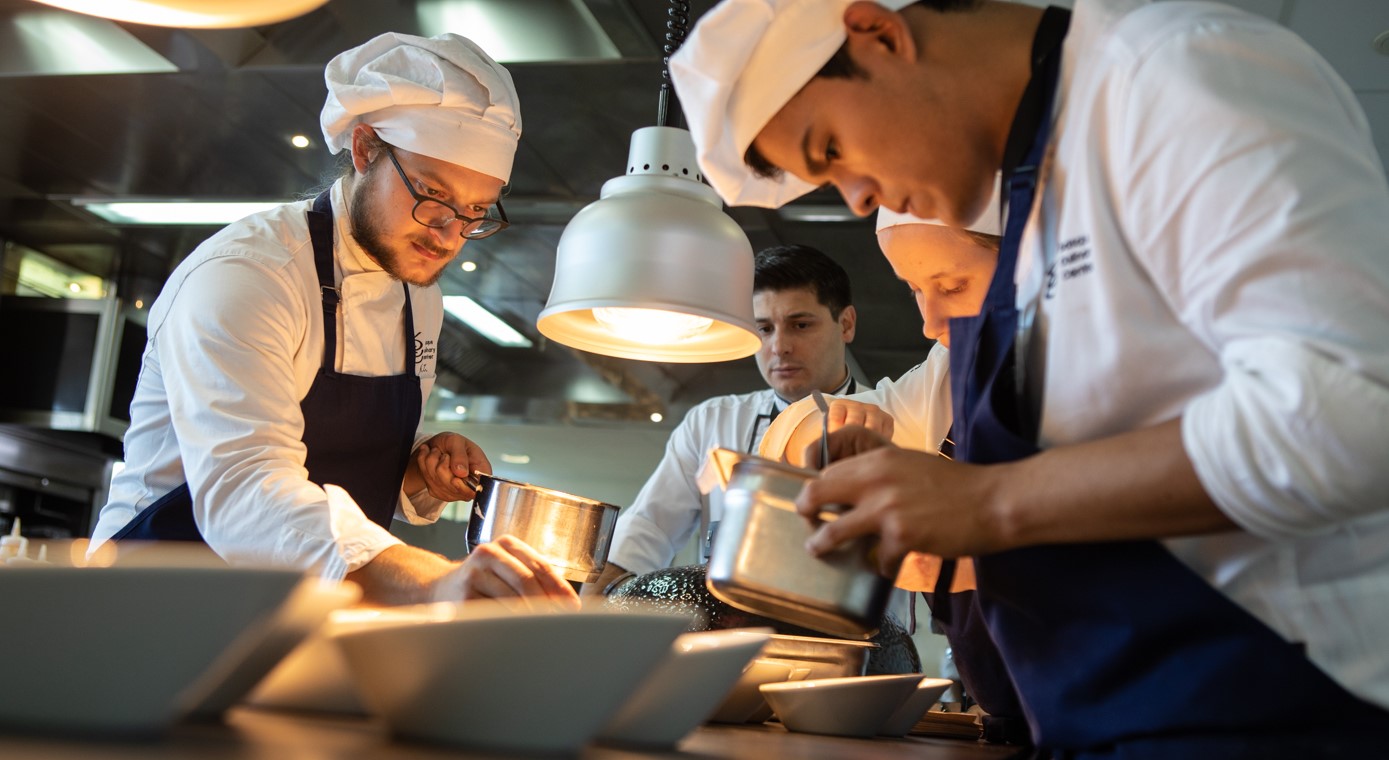
Learning will also take place outside the classroom through visits that will enable students to learn first-hand about the origin of the products they cook. In this master’s course, there will be technical visits relating to the primary sector, production processes, restaurants and gastronomic experiences.
Teachers and guests
You will learn from the industry's leading professionals!
Our program is enriched by a panel of instructors who are accomplished experts in the field of gastronomy, boasting extensive national and international experience.
Master's coordinator

Hector Cabello Lerma
Master's coordinator
Hector's culinary journey has taken him across Europe, stemming from his humble beginnings in Valencia. He ventured out to explore the world after completing his culinary studies, working alongside renowned chefs such as Alain Ducasse, Morgan Menieur, Pascal Bardet, Patrick Ogehard, Pontus Frithiof, Jef Berard, Luis Arrufat, Pedro Salas, and Juan Exojo. With a wealth of expertise in defining gastronomic offerings and systematizing culinary processes in the realm of fine dining, Hector brings a remarkable perspective to our program.
Professors
Colaborador experto
Enrique is a renowned chef and co-owner of the two-star Michelin restaurant "Cocina de Fleischmann" in Spain. With extensive experience in the culinary world, he is celebrated for his creative approach to Basque cuisine.
Colaboradora experta
Marta is a respected sommelier and wine expert, known for her expertise in pairing wines with gourmet cuisine. She has curated wine lists for prestigious restaurants and has a deep understanding of the world of oenology.
Colaborador experto
Paco is an acclaimed chef with multiple Michelin stars to his name. He is known for his innovative Mediterranean cuisine and has created culinary experiences in various locations worldwide, including Enoteca, Miramar, and more.
Colaborador experto
Rafa Zafra is a highly regarded chef who specializes in Andalusian and Mediterranean cuisine. His culinary expertise has earned him critical acclaim, and he is recognized for his dedication to traditional flavors.
Colaborador experto
Albert is a culinary entrepreneur and expert in the field of gastronomy. He has been involved in various culinary ventures and brings a wealth of knowledge about the culinary industry.
Fees / Grants
The total cost of the Master's program is 11.750 €. Payment will be made as follows:
150 € upon application (fully refundable in case of non-admission).
25% of the total, 2.900 € upon confirmation of admission as a reservation fee.
The remaining amount is 3 installments of 2.900 € to be paid during the academic year.
The price of the master's program includes:
Basque Culinary Center uniform.
Academic materials and access to the learning platform.
Learning journeys (transport, visit management, accommodation, and breakfast).
Guest chef masterclasses.
Management and supervision of external curriculum internships.
Issuance and delivery of the diploma.
Access to the over 5,000 references in the Faculty's Library.
Enrollment in the service for Basque Culinary Center alumni: Bculinary Alumni.
Admission
Basque Culinary Center has an admissions system aimed at ensuring that our students have the academic level and personal competencies necessary to successfully complete an innovative and demanding curriculum. After completing the application process, the Admissions Committee will select the admitted candidates.
-
Interested individuals must complete the online registration and upload a copy of their valid ID/NIE or passport for the registration to be validated. Regular registration will be available starting from December 2023.
-
In addition to completing the online registration, you must send the following scanned documentation to admisiones@bculinary.com:
ACADEMIC DOCUMENTATION:
STUDENTS CURRENTLY ENROLLED IN THE FINAL YEAR OF A BACHELOR'S DEGREE:
• Academic transcript showing all grades earned to date.
STUDENTS WITH PREVIOUS UNIVERSITY STUDIES COMPLETED IN SPAIN:
• Certified photocopy of the degree or certificate from the university confirming that the studies have been completed.
STUDENTS WITH PREVIOUS UNIVERSITY STUDIES COMPLETED IN A MEMBER COUNTRY OF THE EUROPEAN UNION, NORWAY, ICELAND, LIECHTENSTEIN, AND SWITZERLAND:
• SET (European Diploma Supplement) or, if not available, Certification from the home university confirming that the student is eligible to pursue Master's studies.
STUDENTS WITH PREVIOUS UNIVERSITY STUDIES COMPLETED IN A COUNTRY OUTSIDE OF THE EUROPEAN UNION, NORWAY, ICELAND, LIECHTENSTEIN, AND SWITZERLAND:
• Certification from the home university confirming that the student is eligible to pursue Master's studies. This certification must be apostilled or, in the case of countries that have not signed the Hague Convention No. 12 of October 5, 1961, legalized through consular or diplomatic channels.
LANGUAGE PROFICIENCY CERTIFICATION:
• Students whose native language is not English must provide official certification demonstrating that they have an English language proficiency level equal to or higher than B2 (Common European Framework of Reference for Languages, CEFR).
ADDITIONAL DOCUMENTATION:
In addition to the aforementioned documentation, all registrants must also submit:
• Updated CV.
• Motivation letter for enrolling in the training program.
-
A personal interview will be conducted to assess the suitability of the candidate based on their motivation and learning objectives.
-
Admitted students will be required to pay a reservation fee of €1,000.
It is important to note that:
• The application deadline will remain open until all slots are filled. The maximum number of admitted students will be 20.
• In the case of international students, the enrollment certificate required for visa processing will be provided once the reservation fee is received.
For any queries or further information, please contact admisiones@bculinary.com
Student service
Accommodation

LIVENSA LIVING SAN SEBASTIÁN, AN INNOVATIVE CONCEPT OF LODGING
Livensa Living San Sebastian is located in the neighborhood of Ibaeta, in a quiet area and a step away from Tolosa Avenue that leads to Ondarreta beach. It is an accommodation that takes care of all the details and is designed to make you feel at home during your stay in Donostia-San Sebastian. It has spaces to relax and share time in company.
Features to highlight:
- Single rooms with full kitchen and private bathroom
- Laundry
- Gym
- Common kitchens or "txokos".
- Leisure areas: living room, games room, cinema room, etc.
- Music rehearsal rooms
- Co-working spaces
- Private parking
Take advantage of the preferential rates for Basque Culinary Center students.
More information about accommodation here
Other accommodation options
Religious residences
These types of residence are small and have restricted entrance times. The rooms can be single or double and they do not always have an ensuite bathroom. Those that offer full board may not offer all the meals at weekends. Admission to these residences entails a personal interview with the families. The prices given below are approximate.
Female residences
Residencia Compañía de María
Camino de S. Bartolomé, 24. Tel 943 464795. Regimen full board Precio aproximado €625/month
Esclavas del Sagrado Corazón
Avda. Gral. Zumalakarregi, 11. Tel 943 210800. Regimen full board Precio aproximado €580-€615/month Residents must leave the residence at weekends with the exception of examination periods.
Misioneras del Sagrado Corazón
Paseo de la Fe, 34. Tel 943 456072. Regimen full board Precio aproximado €350-€490
Residencia Villa Alaidi E.A.M.
Paseo de Heriz, 95. Tel 943 210866. Regimen half board or full board Precio aproximado from €450 to €590/month No se ofrecen comidas durante el fin de semana aunque hay una cocina a disposición de las residentes.
Residencia el Carmelo Pasión
Ilumbe, 8. Tel 943 456600. Regimen full board Precio aproximado €540-€605/month
Colegio Mayor Jaizkibel
C/ Aldapeta, 49. Tel 616 369 815. Regimen Pensión completa. Precio aproximado 932€/mes. No hay cocinas disponibles para las residentes pero las estudiantes de BCC podrán realizar prácticas de cocina.
Residencia Cet Oria
Paseo de Ayete, 25. Tel 943 242400. Regimen pensión completa. Precio aproximado 370€. El precio del alojamiento y pensión se costea trabajando en el servicio de alimentación. Admisión mediante entrevista.
Camino de S. Bartolomé, 24. Tel 943 464795. Regimen full board Precio aproximado €625/month
Avda. Gral. Zumalakarregi, 11. Tel 943 210800. Regimen full board Precio aproximado €580-€615/month Residents must leave the residence at weekends with the exception of examination periods.
Paseo de la Fe, 34. Tel 943 456072. Regimen full board Precio aproximado €350-€490
Paseo de Heriz, 95. Tel 943 210866. Regimen half board or full board Precio aproximado from €450 to €590/month No se ofrecen comidas durante el fin de semana aunque hay una cocina a disposición de las residentes.
Ilumbe, 8. Tel 943 456600. Regimen full board Precio aproximado €540-€605/month
C/ Aldapeta, 49. Tel 616 369 815. Regimen Pensión completa. Precio aproximado 932€/mes. No hay cocinas disponibles para las residentes pero las estudiantes de BCC podrán realizar prácticas de cocina.
Paseo de Ayete, 25. Tel 943 242400. Regimen pensión completa. Precio aproximado 370€. El precio del alojamiento y pensión se costea trabajando en el servicio de alimentación. Admisión mediante entrevista.
Male residences
Pº Ayete, 25. Tel 943 21000. Regimen Pensión Completa. Precio aproximado 1.055€/mes.
Pº Maddalen Jauregiberri,2. Tel 943 454400. Regimen habitación y desayuno. Precio aproximado 320€-380€/mes.
Secular residences
These are mixed and are larger than the religious residences. As a general rule, they do not have entrance times.
Mixed residences
Numad Studios
Paseo de Miramón, 162. Tel (+34) 943 56 91 28. Regimen acommodation in studio with fully furnished kitchen and private bathroom Precio aproximado desde 600€ hasta 880€/mes A tan solo un paso de Basque Culinary Center. Instalaciones equipadas con un amplio espacio de cocina dedicado a prácticas culinarias, salas de estudio, gimnasio y zona lounge para socializar con otros residentes.
Colegio Mayor Olarain
Pº Ondarreta, 24. Tel 943 003300. Regimen alojamiento y desayuno, media pensión o pensión completa Precio aproximado desde 498€ hasta 1.090€/mes. El precio incluye la limpieza del uniforme de cocina. No hay cocinas disponibles para los residentes aunque los estudiantes de BCC podrán hacer prácticas de cocina en un espacio debidamente equipado para ello.
Residencia Manuel Agud Querol
Pº Berio, 9. Tel 943 563000. Regimen alojamiento. Precio aproximado desde 403€ hasta 690€/mes. Residencia de la Universidad de País Vasco; alojan prioritariamente a los estudiantes de la UPV pero pueden tener plazas disponibles desde la reciente ampliación.
Paseo de Miramón, 162. Tel (+34) 943 56 91 28. Regimen acommodation in studio with fully furnished kitchen and private bathroom Precio aproximado desde 600€ hasta 880€/mes A tan solo un paso de Basque Culinary Center. Instalaciones equipadas con un amplio espacio de cocina dedicado a prácticas culinarias, salas de estudio, gimnasio y zona lounge para socializar con otros residentes.
Pº Ondarreta, 24. Tel 943 003300. Regimen alojamiento y desayuno, media pensión o pensión completa Precio aproximado desde 498€ hasta 1.090€/mes. El precio incluye la limpieza del uniforme de cocina. No hay cocinas disponibles para los residentes aunque los estudiantes de BCC podrán hacer prácticas de cocina en un espacio debidamente equipado para ello.
Pº Berio, 9. Tel 943 563000. Regimen alojamiento. Precio aproximado desde 403€ hasta 690€/mes. Residencia de la Universidad de País Vasco; alojan prioritariamente a los estudiantes de la UPV pero pueden tener plazas disponibles desde la reciente ampliación.
Accommodation in shared flats
Prior authorisation from interested parties, the BCC Students'Office favours contact among admitted students so that they can organise themselves to share flats. Traditionally, students have created groups in social media to contact each other. The BCC also informs students about rented flat offers that the owners send us. The average price per student in a shared flat in Donostia-San Sebastian is around €300 per month.
Procedures before travelling
Students from European Union member countries, Norway, Switzerland. Liechtenstein and Iceland will not require a visa to reside in Spain.
Other international students will have to request a long-term student visa which will allow them to reside in Spain for a period longer than 180 days.
Visas should be requested from, and issued by the Diplomatic Missions and Spanish Consul Offices abroad. It is important to obtain information on the required documentation and gather it as soon as possible, since the relevant authorities may take up to two months to notify that visas will be granted.
Once students have arrived in Donostia-San Sebastian, they have one month from the time of their arrival to request the foreign students’ card at the Foreign Residents Office in Donostia-San Sebastian. The students’ office of the BCC will provide the necessary information to students in this matter.
Sport service
Through the MU Sports Service, students can access team sports as well as individual sporting activities and Group trips (weekend skiing, surfing trips….).
Donostia-San Sebastian also has an extensive offer of municipal sporting facilities. The Kirol Txartela (sport card) permits access to all the city’s municipal facilities at a very economical price. For more information, go to the following link.
Cost of living info
Information on the COST OF LIVING in San Sebastian is given below:
The best way to move around the city is with the network of urban buses. The company which provides this service is Compañia del Tranvia de Donostia-San Sebastian.
Their web page www.dbus.es contains all information on routes, timetables and tariffs. The web page also enables the calculation of the bus route between two points and its estimated duration.
Students can benefit from monthly season tickets which reduce the cost of travelling by bus.
Donostia - San Sebastián
Donostia-San Sebastian is the administrative capital of Gipuzkoa, one of the territories that integrates the Basque Country. There are two official languages: Spanish and Basque.
On the banks of the Bay of Biscay,, Donostia-San Sebastián is a small town within a natural framework of incomparable beauty. A holiday destination for monarchs and nobles during the Belle Epoque, Donostia-San Sebastian arose as a lordly city where tradition and modernity exist side by side.
If there is something that can compete with its spectacular beauty that is its gastronomy: cradle of the “new Basque cuisine”, Mecca of culinary avant-garde and the world capital of the pintxo, Donostia-San Sebastian is the city with the most Michelin stars per square metres in the world. The importance of its restaurants, its famous gastronomic societies and the quality of its raw material convert Donostia-San Sebastian into a gastronomic reference in the world. Not in vain, the British magazine, “Which”, chose Donostia-San Sebastian as the best gastronomic destination in the world.
Over the last few years, innovation and sustainability have been the two main pillars for the development of Donostia-San Sebastian, which has fostered an ideal city of pedestrians and bicycles.
Why study gastronomy in Donostia-San Sebastian?:
- ecause in Donostia-San Sebastian, as in the rest of the Basque Country, gastronomy forms part of society and good food is present at any event and celebration. Donostia-San Sebastian, a city of 185,000 inhabitants, has 120 gastronomic societies.
- Because four of the eight restaurants with three Michelin stars in Spain are in the Basque Country, three of them in Donostia-San Sebastian.
- Because of its cultural offer, which includes internationally renowned film and jazz festivals. Donostia-San Sebastian has been named as European Capital of Culture for 2016.
- Due to its beaches, ideal for practicing surf all year round.
- Due to its mountains, just 2.5 hours from the Pyrenees.
- Because it is a safe, accessible and welcoming city.
How to reach Donostia-San Sebastian
Donostia-San Sebastian is connected to the main Spanish cities by bus, train and plane. The airport of Donostia-San Sebastian is 20 kilometres from the city. It is a small airport with direct flights from Madrid and Barcelona. It has a bus service to the city centre. The international airport of Bilbao is one hour from Donostia-San Sebastian, and it is connected to the city with a frequent bus service from the actual airport. The international airport of Biarritz is 45 minutes away although it only offers a direct bus to Donostia-San Sebastian once a day. DISTANCE IN KMS.
- Bilbao – 99 km
- Biarritz – 50 km
- Madrid – 450 km
- Barcelona – 570 km

BCC Students
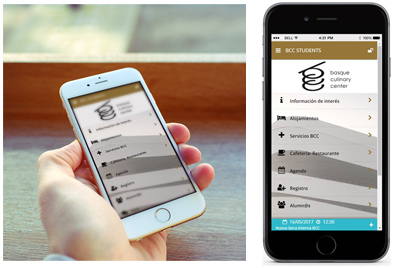
During their study years, BCC students will have access to the BCC Student APP. Through this APP students will be informed about grants and scholarships, job opportunities, extracurricular learning opportunities, events, invitations to exclusive Master Classes... They will also be informed on student discounts, BCC Cafeteria or Restaurant reservations, transportation, etc.
BCulinary Alumni
You can access all the information in the following link.

